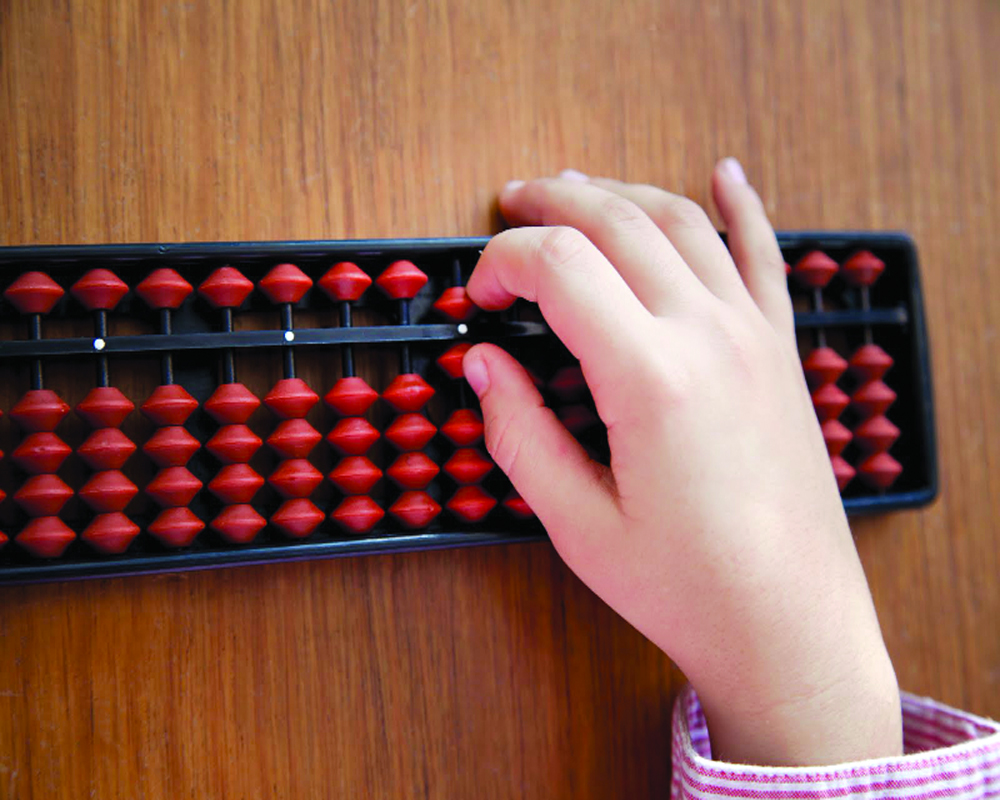Dr Rashmi Mantri elucidates on how training your children in the ancient tool helps them not just with mathematics but in day to day life too
Children possess an amazingly innate ability to learn. However, their expansive brain potential isn’t always nurtured thoroughly. With technological advancements, children are becoming increasingly hooked to smart devices and gadgets as they find them fascinating. This can result in attention deficiency, a decline in learning capabilities and an overall deterioration in brain development. Parents have now recognised this problem and are turning to the ancient device, abacus, to enhance the cognition and brain-power of their children.
Abacus is no longer merely a tool for mathematical calculations, it has now become an essential instrument for a child’s mental development, offering numerous cognitive and logical thinking benefits. Research has also indicated that it helps improve memory, levels of concentration and a child’s performance in academics and life, in general.
In light of these benefits, abacus classes have emerged as a crucial upskilling course and have become extremely popular.
Abacus training not just helps in strengthening a child’s mathematical capability but also aids in developing the necessary skill set to take on the challenges posed by the world. Provided below are the major advantages that are brought on by abacus training.
Mathematical proficiency
It is a well-known fact that children fear mathematics and consider it to be a difficult subject. However, it is one of the most interesting if one invests time and approaches it correctly. Abacus results in a better understanding of math when introduced from an early age. Regular practise of abacus and visualisation brings desired and impressive outcomes; the child becomes capable of performing mathematical calculations mentally.
Logical understanding
After years of abacus training, children recall the image of the abacus to carry out mental calculations. With practise, a child learns to apply logic based on the movement of the beads. It not only helps in his/her early years, but it also trains the brain to apply logic as and when required later in day-to-day situations in everyday life.
Sharpens memory
The abacus trains the mind in such a way that it learns to avoid any distraction while calculating or carrying out mathematical operations. Abacus courses have a positive impact on children, especially when practised daily wherein they achieve a high level of concentration and memory. After mastering the abacus, they move on to a visualisation technique that helps them in carrying out calculations virtually which further boosts concentration and sharpens memory. Later, when children use these skills in other walks of lives they find themselves ahead of non-abacus individuals in executing various tasks — simple or tedious.
Motor skills
Besides improving brain function, the abacus also helps in stimulating organs that result in the overall development of the child. The movement of the small beads immensely helps the child in developing their gross motor skills.
Develops analytical skills
When a child is solving a mathematical problem using an abacus, they are simultaneously honing their analytical skills. The capability to figure out which formula to use is nothing else but analytical skills. The development of analytical skills is not just restricted to the world of numbers, as the child grows, it will help them in real-life situations.
Spatial reasoning
An abacus is a multi-sensory tool. It behaves in many different, yet controlled ways, and it demonstrates how children can equate physical objects with abstract thinking. This helps build both their spatial reasoning and imagination.
In conclusion, it is evident from the long list of benefits of an abacus course that it contributes greatly to nurturing mathematical skills in young children. Additionally, it also prepares kids for the bigger challenges and opportunities of life by fostering soft skills in them. When children solve mathematical problems with the help of an abacus, they are also honing their critical-thinking and analytical skills.
(The author is the founder and chairperson of British Youth International College, an educational institution that provides co-curricular training programmes.)


























